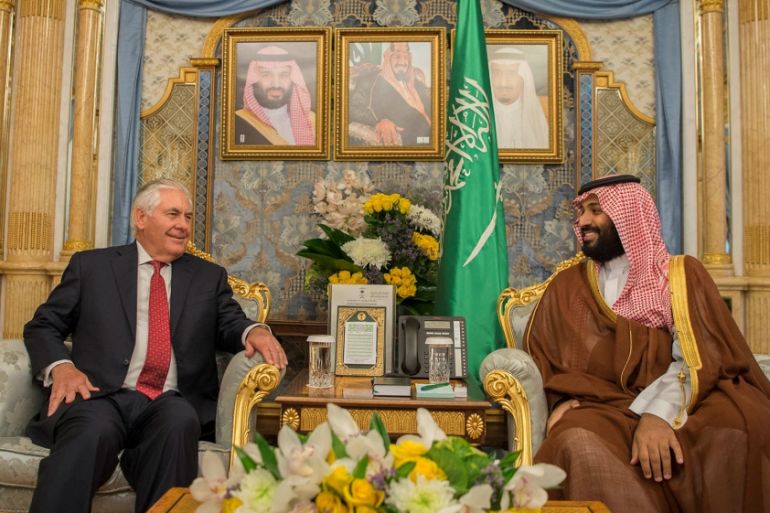Saudi move will force region into ‘further discord’
Foreign Affairs article says Riyadh’s leadership has ‘a penchant for overplaying its hand’ in the region.

Saudi Arabia’s and its Arab allies’ move to impose a political and economic blockade on Qatar has “plunged the Middle East into further discord”, a leading foreign policy magazine published by the US-based Council on Foreign Relations said.
In an article published on Wednesday, Foreign Affairs magazine said the “missteps” committed by the Saudi-led group pushed Doha “directly into Iran and Turkey’s hands”, noting that the many of its demands “were based on false premises”.
Keep reading
list of 4 itemsQatar emir condemns ‘genocide’ in Gaza, urges ceasefire at GCC summit
‘Enduring commitment’: Key takeaways from US-GCC joint statement
Analysis: Efforts to end Assad isolation gather speed after quake
“The blockade is unlikely to result in Qatar returning to the GCC [Gulf Cooperation Council] fold. Rather, it will essentially affirm that the new leadership in Saudi Arabia has a penchant for overplaying its hand,” Bassima Alghussein and Jeffrey A Stacey wrote in the article.
READ MORE: Qatar’s reaction in full to the Gulf diplomatic crisis
“In addition to Saudi Arabia driving Qatar closer to Iran, its behavior has weakened the GCC – a body that is fundamental for regional stability and commerce.”
Saudi Arabia, the United Arab Emirates, Egypt and Bahrain slapped sanctions on Qatar on June 5, accusing it of financing “extremist” groups and allying with the Gulf Arab states’ regional rival Iran – allegations that Doha has repeatedly denied.
On June 22, the group issued a 13-point list of demands, including the shutdown of the Doha-based Al Jazeera network, limiting ties with Iran and expelling Turkish troops stationed in the country, as a prerequisite to lift the sanctions.
Doha refused to accept the list of demands.
Kuwait’s Emir Sabah Al Ahmad Al Jaber Al Sabah is currently trying to mediate in the dispute. Foreign diplomats, including US Secretary of State Rex Tillerson and Britain’s Foreign Secretary Boris Johnson, have visited the region and held talks with officials from the affected countries.
![Tillerson is engaged in shuttle diplomacy in the region to help resolve the Gulf crisis [Reuters]](/wp-content/uploads/2017/07/f3e94f9e5f0648e3bae0cb1c69c78b0d_18.jpeg)
‘Stare-down’
With no prospect of the dispute being resolved soon, “the stare-down will continue apace”, the Foreign Affairs article said.
“Because Qatar complied with none of the GCC’s demands, the gambit’s lack of coherence is being laid bare. Without a plan B, immediate escalation is unlikely to transpire.
“Instead, it is probable that both sides will go forward for the time being in a state of mutual diplomatic paralysis.”
The article also pointed out that while the blockading countries are demanding that Qatar cut its relationship with Iran, the UAE continues to maintain a relationship with Tehran.
“The UAE’s relationship with Iran is tolerated because the Emirates, by and large, do not challenge Saudi hegemony in the region. Conversely, Qatar is viewed as having outsized ambitions and is perceived to regularly undermine Saudi predominance.”
Qatar has repeatedly said that while it is willing to talk with its Gulf neighbours to resolve the rift, it will not change its “independent” foreign policy.
|
|